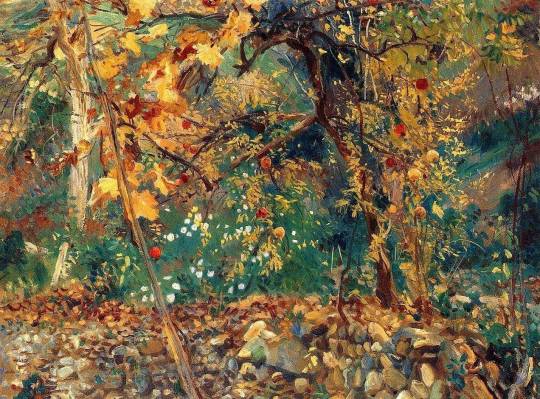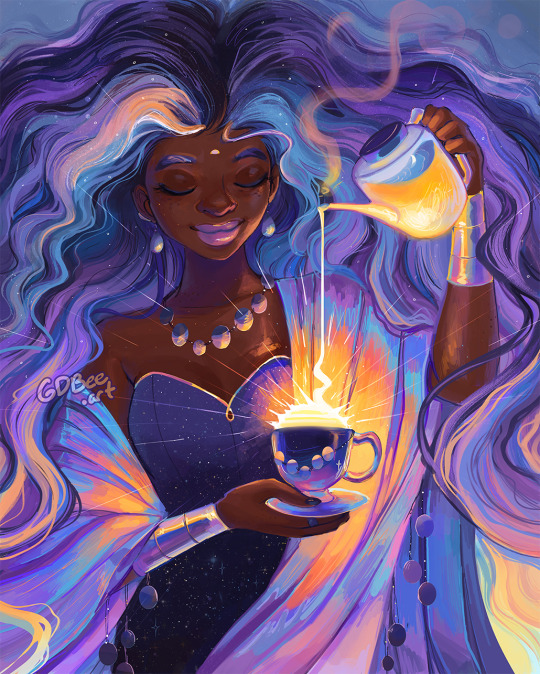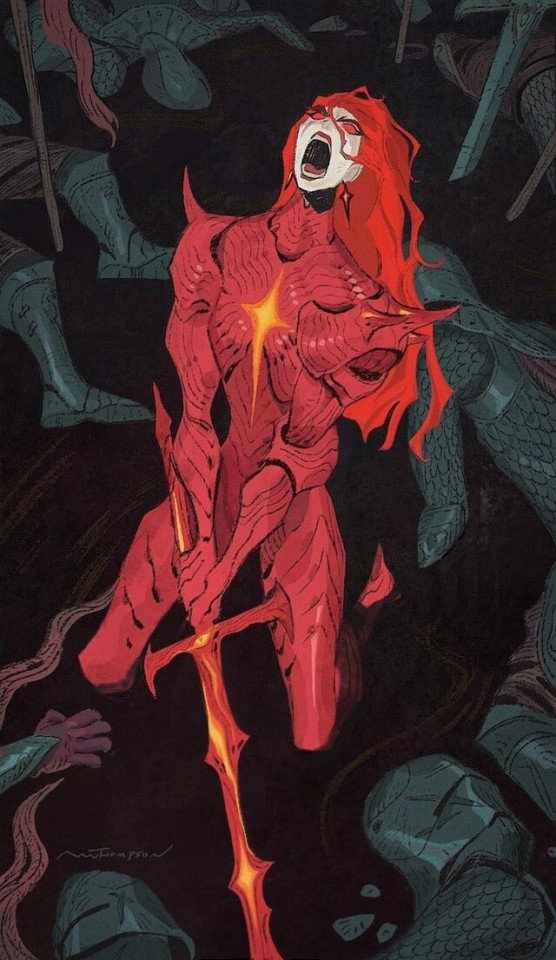Just a distractable nerd at art school trying to self motivate. Can you tell I like DnD?
Don't wanna be here? Send us removal request.
Text
“The notebooks of elementary school were certainly a cage, with their horizontal black lines and vertical red ones. There, in fact, I began to put down little stories in writing, and since then I’ve tended to transform things into neat narratives, orderly, harmonious, successful. But the discordant clamor in my head remains; I know that the pages that finally persuade me to publish books come from there. Maybe what saves me—though it doesn’t take much for salvation to be revealed as perdition—is that beneath the need for order is an enduring energy that will stumble, disarrange, delude, mistake, fail, soil. That energy pulls me every which way. Over time, writing has come to mean giving shape to a permanent balancing and unbalancing of myself, arranging fragments in a frame and waiting to mix them up. Thus the novel of love begins to satisfy me when it becomes the novel of being out of love. The mystery begins to absorb me when I know that no one will find out who the murderer is. The bildungsroman seems to me on the right track when it’s clear that no one will be built. Beautiful writing becomes beautiful when it loses its harmony and has the desperate power of the ugly.”
—
From In the Margins: On the Pleasures of Reading and Writing, Elena Ferrante.
75 notes
·
View notes
Text
Love Gets Weird
God is love but love gets weird Said the flea to the ant in the devil’s beard We are passengers here, and it’s as we feared That God is love but love gets weird
Yes, God gets weird and so does love Said the flea to the ant and gave him a shove And came down upon him from above Crying, God gets weird and so does love
Well, Weird got Love and God got Weird And in the monstrous morning there appeared The very thing we’ve always feared That God is nothing, but love gone weird
Words by Nate Lane/Nick Cave
217 notes
·
View notes
Text
[Image description: a painting of a forest in fall, with expressive brushstrokes. End ID]

John Singer Sargent -
Valdemosa, Majorca, Pomegranate Trees (1908)
69 notes
·
View notes
Text
it is high-fantasy autumn, i feel it in my bones
198 notes
·
View notes
Photo
[Image description: a black and white drawing of an angel and an astronaut standing together on the moon. There is a map pulled open between them, and the angel is looking up at the astronaut attentively. End ID]

Asking for directions
#art#favorite#daichi#(For angel tag reasons)#this is BEAUTIFUL AAAAAAA#Like I cannot stop looking at it the whole piece is just so charming and gorgeous <3
270K notes
·
View notes
Text
[Image Description: text that reads "Still, there is this terrible desire to be loved. Still, there is this horror at being left behind." End id.]

Michael Cunningham, The Hours
34K notes
·
View notes
Text
I know it's been said 100 times before, but it bears repeating: your story doesn't have to be perfect.
I just finished reading a fully published, printed book that sometimes dragged on. I found myself critiquing it, zoning out every now and then, finding some of the characters annoying.
But you know what? The emotional peak still made me tear up. I was still rooting for the main character the whole way. I still saw how heart felt, relatable, and well-thought-out the plot was.
Not every chapter, not ever paragraph, not every sentence, not every word needs to strike a chord for your story to mean something.
With all it's imperfections, your story is worth telling.
5K notes
·
View notes
Text
At 40, Franz Kafka (1883-1924), who never married and had no children, walked through the park in Berlin when he met a girl who was crying because she had lost her favourite doll. She and Kafka searched for the doll unsuccessfully.
Kafka told her to meet him there the next day and they would come back to look for her.
The next day, when they had not yet found the doll, Kafka gave the girl a letter "written" by the doll saying "please don't cry. I took a trip to see the world. I will write to you about my adventures."
Thus began a story which continued until the end of Kafka's life.
During their meetings, Kafka read the letters of the doll carefully written with adventures and conversations that the girl found adorable.
Finally, Kafka brought back the doll (she bought one) that had returned to Berlin.
"It doesn't look like my doll at all," said the girl.
Kafka handed her another letter in which the doll wrote: "my travels have changed me." the little girl hugged the new doll and brought her happy home.
A year later Kafka died.
Many years later, the now-adult girl found a letter inside the doll. In the tiny letter signed by Kafka it was written:
Everything you love will probably be lost, but in the end, love will return in another way."
896 notes
·
View notes
Text
[Image Description: text that reads, "So passes my rainy, quiet Sunday, I sit in my bedroom and am at peace," end id.]

Franz Kafka, The Diaries of Franz Kafka: 1910-1913
18K notes
·
View notes
Text
I don’t remember if this was in the book or if I heard her tell a story in an interview, but I learned somewhere years ago that when Allison Bechdel sent her mother a draft copy of Are You My Mother? (Bechdel’s frankly very exposing graphic memoir about her relationship with her mother), asking for, I don’t know? Feedback? Permission? Absolution? her mother’s whole and entire response was “It coheres.” Two words and a period. And it’s absolutely true about that book and the most impressive thing about it, actually. The book collages an enormous amount of time and space and thought into a coherent piece of art. It could so easily have failed to do so, but it succeeded. I think about this all the time both because of the efficiency of Bechdel’s mother’s commentary and the myriad conclusions I find myself itching to leap to about her personality based on that single anecdote, but also because it got my thinking about coherence as an artistic value. As perhaps the final artistic value. So, you had something to say. Did you say it?
26K notes
·
View notes
Photo

Sunshine
14K notes
·
View notes
Text
Ways of Being Lonely
by Kim Addonizio
Like a haunted river no bridge wants to lay itself down over. Like a taxidermied grizzly in the student union. You cry at a frequency only subatomic insects can hear. That time with him in Houston. Sometimes you flame into a scary flower. An eruption of coherence in the postmodern seminar. You stand in a shallow creek and your reflection floats slowly downstream without you. Alcohol is your emotional-support animal. The fan hums erratically. An unclaimed suitcase of miniature toiletries, burst open on the baggage carrousel. Like an amoeba without an e-scooter. An extra in an epic battle scene, trampled by a non-Equity horse. You’re a red-breasted flute, but everyone else is a dowel. A Zen koan growing in the White House Rose Garden. Sun-damaged curtains in the parlor of an abandoned friendship. You’re the queen, but you’re a bee being swept into the pool’s filtration system. Like a version, touched for the very last time. Spooky piano music rising from the dishwater. You wake up alone to a bird reciting Keats.
332 notes
·
View notes
Text
friends! i’ve recently (re)discovered this particular short story by catherynne m. valente and good god. what a masterful little tale. i cannot say too much about it, or even mention the title of the anthology it was originally included in, because that would spoil half the fun of reading it for the first time, but oh. do read it. it truly is miss valente at her best.
2K notes
·
View notes
Text
How do I describe a tired person? I got 'dark circles under the eyes' but it kind of stops there.
36K notes
·
View notes
Text
the theme that always resonates me the most in stories is “the world is cruel; therefore I won’t be.”
85K notes
·
View notes
Photo





Red Knight by Ami Thompson
#rock collection#art#fairytale tag#flame tempered boy#the cat who told stories#and the ship was the sea
30K notes
·
View notes
Text
[Image description: text that reads “I would not be so, if my education had penetrated into me as deeply as it wanted to. Perhaps my youth was too short for that, in which case, now in my forties, I still rejoice over it’s shortness with all my heart.” There is a footnote by “forties” which states “Kafka was twenty-eight years old at the time.” End ID ]


been there, king
22K notes
·
View notes